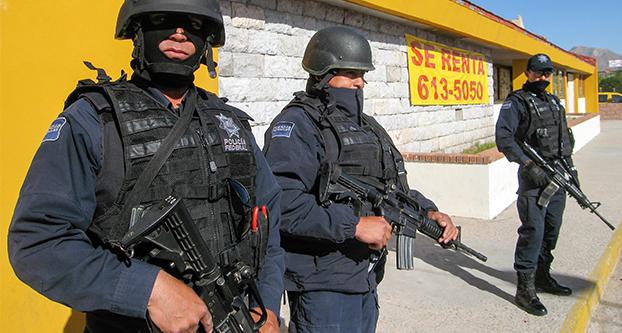Students filled the seats in the McLane Hall Room 121 to hear guest speaker Ethan Nadelmann talk about why we need to end the war on drugs.
Nadelmann, the founder and executive director of the Drug Policy Alliance, argues that it is time to end the war on drugs, an argument that connects to a range of issues such as the power of drug cartels, crime and incarceration rates and the basic human desire to alter consciousness.
“I think the basic message is that this drug war is serving almost nobody’s interest, except for two groups: the prison industrial complex on the one hand and the drug dealers who don’t get caught, on the other hand,” he said.
When Nadelmann asked the audience if they think the war on drugs has failed, the majority raised their hand and Nadelmann agreed because he believes that many people don’t know or understand how bad it is.
“I just think that this war on drugs, both in our country and around the world, is one of the most stupidest policies that modern man has come up with,” said Nadelmann, who has a J.D. and Ph.D. from Harvard University. “I think most people just don’t realize how devastating this drug war has been in terms of the extraordinary levels of incarceration in terms of the massive level of violence you see in Mexico and other parts of Africa.”
Nadelmann said the decision to criminalize certain drugs, such as heroin and cocaine, has little to nothing to do with the danger of the substance but more to do with racial and ethical prejudice against minorities.
“The issue is a little bit personal because I am one of the millions of people who went off to college when I was 18 and started smoking marijuana occasionally and wondering why people were going to jail for it,” he said. “It is also the likelihood of my going to jail for this is not that high, but the likelihood of people with darker skin or people who are poorer was much higher and that is not fundamentally fair.”
Nadelmann added that he is well aware that many students have friends and family members who have been arrested for a drug offense not because they were hurting anybody else, but simply because they were in possession of drugs.
“I have to assume that lots of people here have family or friends who struggle with a drug problem and who don’t see why that should be treated as a criminal matter,” he said. “I have to assume that a lot of people use illicit drugs and don’t have a problem with it. They are not addicted, they are not causing a problem to anybody else, but are still being treated like a criminal.”
Nadelmann ended his talk by encouraging the audience to make sure they register to vote so in November 2016 they can vote to legalize marijuana in California and hopefully vote for other ballot initiatives to help reduce the prison population.
The lecture was sponsored by the Ethics Center and co-sponsored with the Chicano and Latin-American Studies at Fresno State, which holds about a dozen lectures a year.
The lectures are geared toward promoting critical thinking about complicated ethical topics such as America’s drug issue, animal welfare and freedom of speech with regard to religious freedom.
Dr. Andrew Fiala, a philosophy professor at Fresno State, said the idea of having the lectures is to connect research that is happening on campus to the classroom.
“Hopefully students understand the world is a complicated and interesting place and universities are places for freedom of speech to happen and for people to express and explore opinions, including unpopular ones,” Fiala said. “And almost always I think the students come away from these kinds of events feeling a little bit more mature and a little more enlightened.”
Annabella Espana-Najera, a Chicano and Latin-American Studies professor, did much of the coordination for Nadelmann’s lecture.
She wanted to bring someone to campus to talk about the war on drugs for the longest time and is happy she got Nadelmann as she feels he does a lot of research and provides a lot of information in his lectures on the domestic and the Latin America side in terms of winning the war on drugs.
Espana-Najera hoped students and others in the community learn that winning the war on drugs is a complicated problem, but that we can make large steps forward by educating ourselves and voting.
“I hope that they see that it is a really complex issue and I hope that they consider that up to now, most of the policies that we have seen on this issue have not been successful, certainly in Latin America, but also domestically to a large extent,” she said.
“We can’t just sort of sit back and keep doing what we have been doing for 10 or 20 plus years and expect a different outcome. I think we need to have these discussions and I will hope that people keep an open mind and start thinking about what a future policy might look like.”




